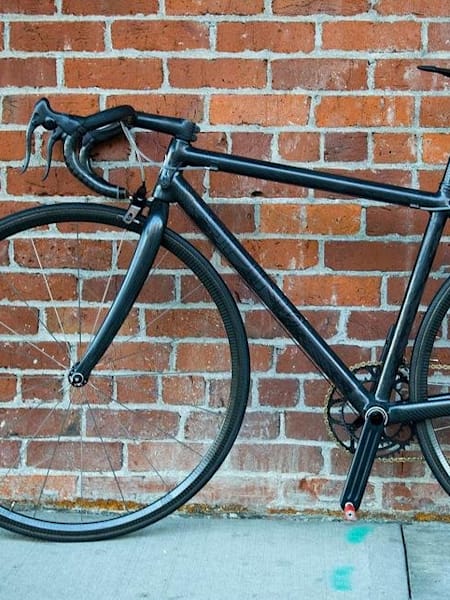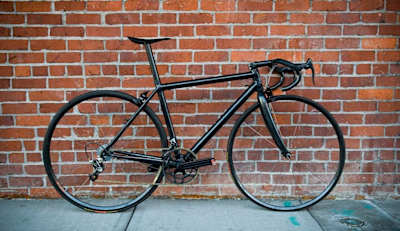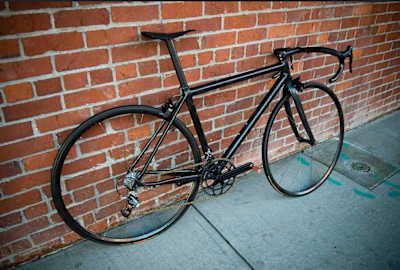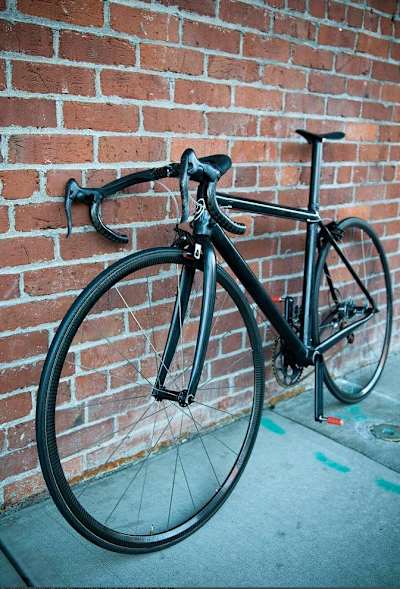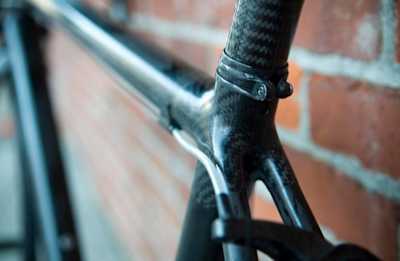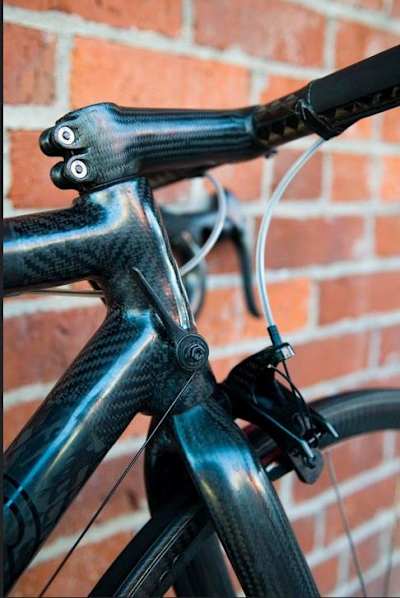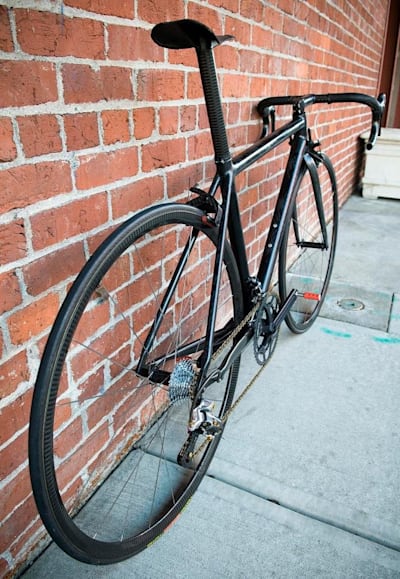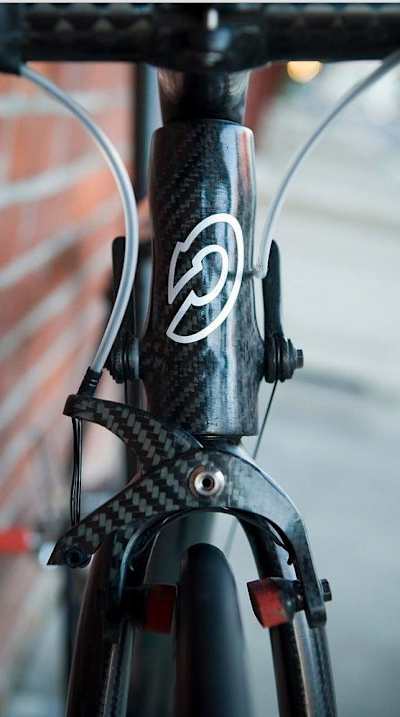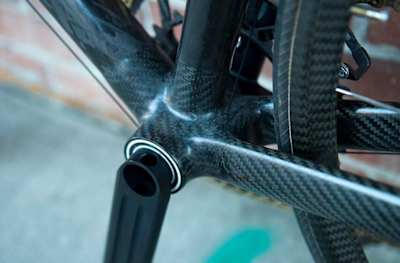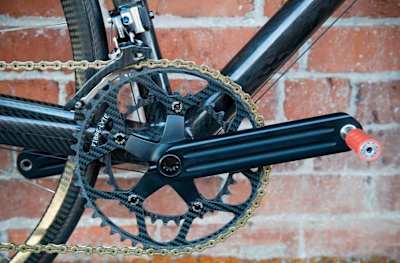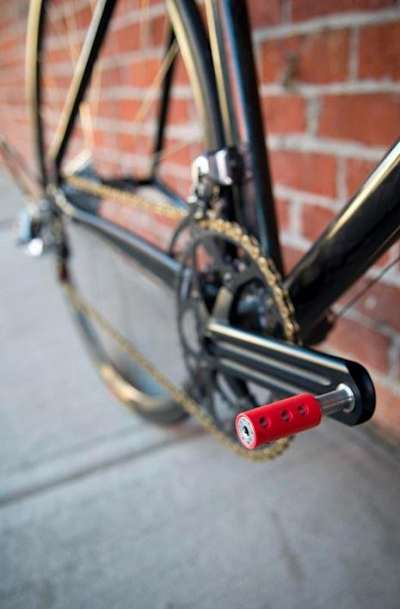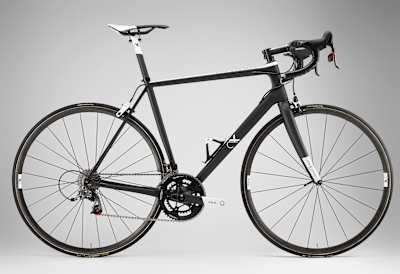Buliding a light bike can be fun but also very expensive. There are, however, weight weenies out there whose sole aim is to build the lightest bike possible.
The lightest road bike ever built is a custom-made concoction that was originally the creation of one person, Gunter Mai. This same bike has since been rebuilt to be even lighter by Fairwheel Bikes, a bike shop in Tucson, Arizona. We take a look at the story of this bike and how it came to be.
The Original 6.6-Pound Road Bike
This no-name rocket ship was originally built in 2008 and weighed just over 6.6 pounds. Gunter eventually got the weight down to 6.1 pounds before dismantling everything and selling on various parts of it to other weight-obsessed fanatics in 2010.
It just so happened that the majority of the bike, including the original custom-built frame, was sold on to someone who worked at Fairwheel Bikes, a bike shop that has a big reputation in the weenie bike world for making light custom bikes and building one-off projects.
Before Gunter's bike came along, Fairwheel had held the previous record for the world's lightest bike with their M2Racer Light Bike.
How the Lightest Road Bike Shed Even More Weight
After nearly a year sourcing missing and new parts, Fairwheel's build, featuring Gunter's original Spin frame, came in at 5.9 pounds. Finished off with minimalist black decals, their aim was to produce a bike that could be used as a working hill-climb racer.
We of course had already seen the bike and had our own ideas on ways to shave some of the weight from it. We felt it was a shame that he (Gunter) came so close to going below six pounds (2.72kg) but didn't quite push it there, missing it by only a few grams.
Lightweight Frame and Fork Design
The carbon frame, taken from Gunter's original bike, is from German company Spin and was built by Marc Siebert, tipping the scales at an incredible 22.7 ounces.
Like the frame, the original custom handmade fork was retained. Built by German company THM it weighs in at 6.5 ounces.
Optimizing the Cockpit for Minimal Weight
The handlebar, stem, brake levers, brake housing, and bar tape total 9.3 ounces. The carbon handlebars were made by Schmolke on a NoRa stem, while the brake levers were built from what used to be Campagnolo Ergo shifters.
Schmolke also provided the seatpost, which is paired with a Tune Speedneedle saddle. The gear shifters are old-style down tube efforts (lighter) but are made from carbon fibre by BTP. Always a classy look.
Ultra-Lightweight Wheels for Maximum Speed
This is where Fairwheel were able to make the biggest weight savings on Gunter's bike. Originally featuring Lew wheels that weighed in at 1.5 pounds, Jason and his team replaced them with their own custom wheel build that featured prototype Ax Lightness rims, a Dash prototype hub, Pillar titanium spokes and Tufo custom tyres. This total wheelset came in at 1.2 pounds.
Fairwheel added AX Lightness Orion brakes with BTP race pads, actually adding some weight to the build and coming in at 3.6 ounces. Gunter's previous brakes weighed 2.5 ounces.
High-Performance Drivetrain in the World’s Lightest Bike
Fairwheel changed the cranks from Gunter's THM Clavicula to a Myth prototype from the Netherlands. The weight on the prototype was 9.9 ounces compared to the 10.5 ounces of the THM crankset.
Other changes in the drivetrain saw a full ceramic bottom bracket used and new carbon fiber chairings made by Fibre-Lyte added. The chain was switched to a titanium chain made by Taiwanese company YBN. Pedals were switched to a custom-made pair by Aerolite, similar to those Gunter had on the bike, but lighter.
Fairwheel added a SRAM Red rear derailleur to the bike. This was heavier than the custom Huret/BTP rear derailleur Gunter had gone for, while the front derailleur is a Campagnolo Record.
Innovations Shaping the Future of Lightweight Road Bikes
Jason of Fairwheel explains that the bike went through one more build before it was dismantled and various parts were sold on. Like before, this build was aimed at making the bike the perfect hill climber. This pushed the weight of the bike up about a quarter of a pound, but it was still lighter than Gunter's version.
Materials and manufacturing processes have moved on somewhat from 2010 and a lighter bike than 5.9 pounds is within the realms of possibility. Jason agrees that getting a bike even lighter wouldn't be a problem, but ultimately it isn't a project for them.
I decided in the end though that while I have a sub-6-pound bike on paper, I wouldn't actually build it at this time. Seems just knowing I can is enough for me at this time.
Comparing the Lightest Road Bike to Standard Models
The world's lightest production road bike is the AX Lightness VIAL Evo Ultra which comes in at a claimed 9.7 pounds for the total bike. AX components actually feature on the lightest custom build, as we mentioned above. AX Lightness has its own frame (weighed at 1.4 pounds), carbon brake calipers, saddle, seat post and U24T wheels on the VIAL Evo Ultra. The drivetrain features Praxis chainrings and THM-Carbones cranks. The production bike would set you back a cool $15,800.

